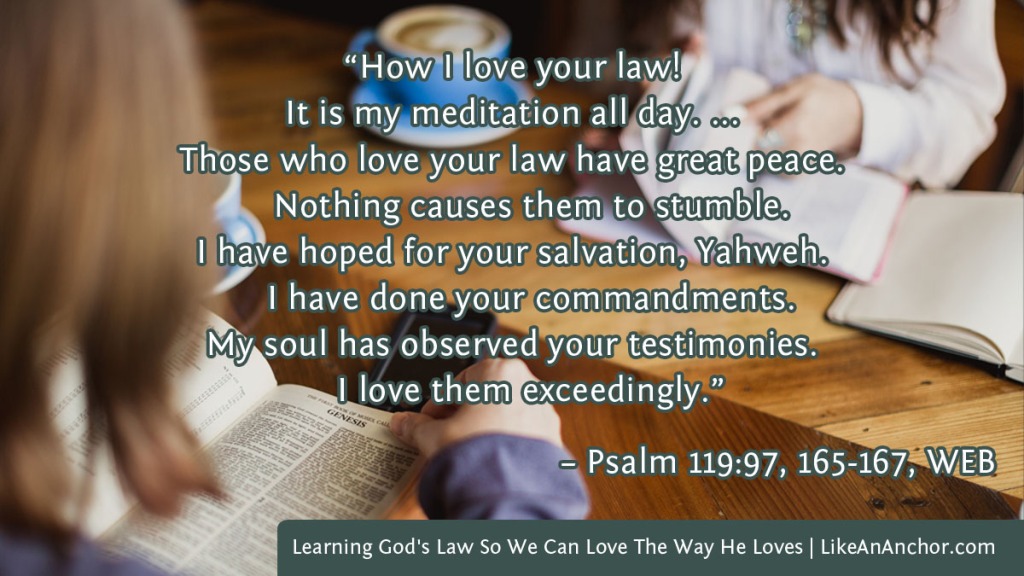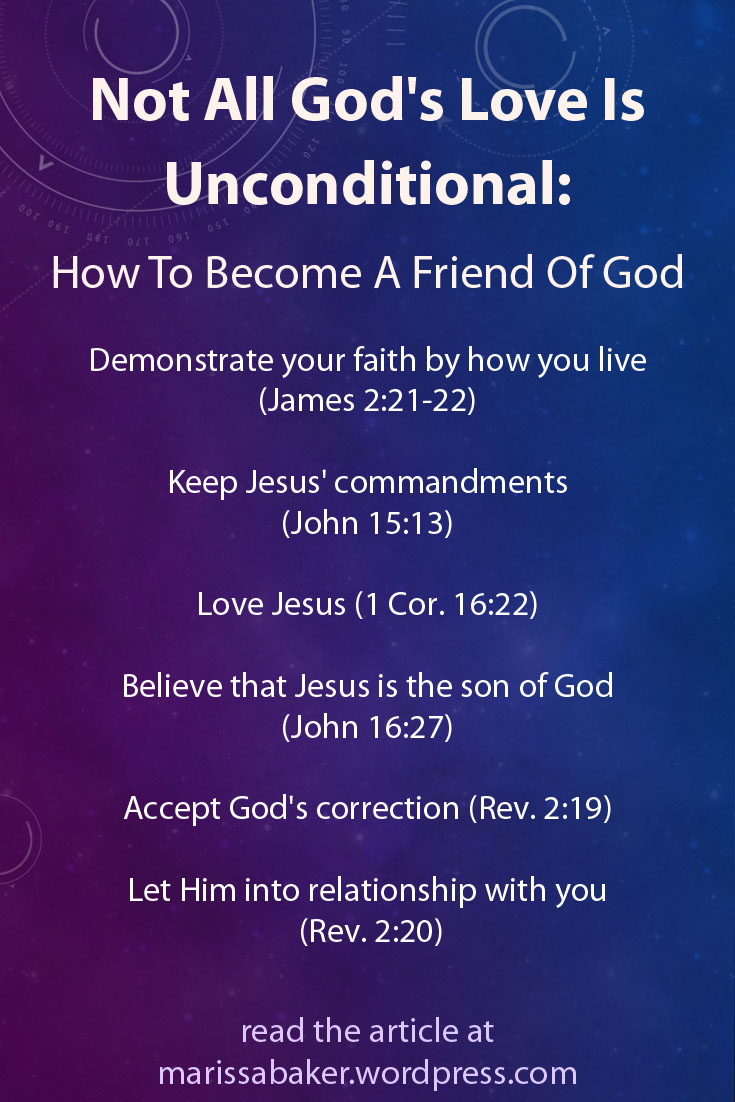Every seven years, at the Feast of Tabernacles (Sukkot), God commanded ancient Israel to read the Law to the entire assembly (Deut. 31:10-13). This festival was one of three pilgrimage feasts during the year, and so most of the people would have gathered together to worship God for eight days (Lev. 23:33-43). That made it the perfect time to ensure as many people as possible heard the reading of the law. Remember, back then people wouldn’t have had personal copies of the Bible to read for themselves. They would (when the nation was working as God intended) learn from their parents as they grew up and from hearing the law read by priests. Eventually, by the time Jesus was growing up, many local synagogues had a copy of the Law and there was formal education for all the young people to learn God’s words and way.
Now when we observe the Feast of Tabernacles (at least the way we do things in my church), we hear sermons every day. We don’t read through the Torah every seven years, but we do hear from God’s word every day and because we all have Bibles, we can read the law for ourselves. But this week, I started wondering if I take full advantage of the opportunity I have to read God’s law. I spend most of my Bible study time looking at topics, and though I do read through the Bible cover-to-cover and then start over again it takes me a long while to do that. I might average going through it every 7 years or less, but it’s hard to say.
When Moses delivered the command to read the Law at the Feast of Tabernacles, he said, “you must read this law before them within their hearing. Gather the people—men, women, and children, as well as the resident foreigners in your villages—so they may hear and thus learn about and fear the Lord your God and carefully obey all the words of this law” (Deut. 31:11-12, NET). Notice the imperative here: you must read the law. It’s not optional, and everyone was included. There was a good reason behind this command. The people needed to hear and learn so that they would fear the Lord and carefully obey His commands. God’s people had a choice between living in covenant with Him and enjoying abundant life, or disobeying and walking down a path toward death (Deut. 30:11-20). He wanted them to have all the information they needed to choose life, just like He wants for people today (1 Tim. 2:3-4; 2 Peter 3:9).
Today, though, many of us aren’t sure what our relationship should be to God’s law. First-century Christians had these questions too, and Paul addresses the topic in many of his letters. We looked at part of his discussion related to how New Covenant believers inherit God’s law in last week’s post. The New Covenant doesn’t come with a brand new law, but rather a deeper, spiritual, and heart-level relationship with God’s laws (Jer. 31:31-33; Matt. 5:17-48). There are certain aspects of the commands in the Old Testament that don’t apply today (e.g. the temple sacrifices are fulfilled by Jesus’s sacrifice) but the rules God gave for living as His covenant people (e.g. the Ten Commandments) are still relevant because they teach us how to become “perfect, just as your Father in heaven is perfect” (Matt. 5:48, WEB).
No Love Without Law
While listening to a sermon at the Feast of Tabernacles this year, one verse caught my ear in a way I’d never quite thought of before. It’s part of the Olivet prophecy where Jesus answer His disciples’ question, “Tell us, when will these things happen? And what will be the sign of your coming and of the end of the age?” (Matt. 24:3, NET). It’s interesting that rather than directly answering their “when” and “what” question, He gave them warnings and things they’d need to know as the time for His second coming drew closer. One of these warnings concerns the persecution of Jesus’s disciples. That started happening pretty much right away, is still happening today to Christians in many parts of the world, and will keep happening more and more as we get closer to Jesus’s return.
“Then they will hand you over to be persecuted and will kill you. You will be hated by all the nations because of my name. Then many will be led into sin, and they will betray one another and hate one another. And many false prophets will appear and deceive many, and because lawlessness will increase so much, the love of many will grow cold. But the person who endures to the end will be saved. And this gospel of the kingdom will be preached throughout the whole inhabited earth as a testimony to all the nations, and then the end will come.”
Matthew 24:9-14, NET
Today, I want to focus on the line, “because lawlessness will increase so much, the love of many will grow cold.” You might be more familiar with a translation like, “Because iniquity will be multiplied,” but “lawlessness” is the more accurate translation. The Greek word is anomia (G458). It is derived from a (used to make a word negative) and nomos (G3551), which means law. In a Biblical sense, that mostly refers to the Law of God. Therefore, anomia means “the condition of without law” either “because ignorant of it” or “because of violating it” (Thayer G458). It can also be translated “contempt,” “iniquity, wickedness,” or “unrighteousness” because that’s the result of living lawlessly.
This statement from Jesus might seem odd to some. Why would a lack of law mean that there’s no love? Depending on your background, you might think that laws are oppressive and restrictive rather than loving. Or you might already see laws in a more Biblical sense, as guards to keep us from hurting ourselves and others. As Paul says, “the law is holy, and the commandment is holy, righteous, and good” (Rom. 7:12, NET). God reveals His laws to us as an expression of His divine character and a guide for how to live rightly in the world He created. If we obey those commands and laws, we’ll be developing His character in us.
Learning to Love Like God
“God is love” (1 John 4:8, 16), and it comes as no surprise that we’re instructed to make His love an integral part of our character. Paul calls love “the more excellent way,” excelling even faith and hope (1 Cor. 12:31-13:13). He also says that if we’re truly loving one another, then we’re fulfilling God’s law.
Owe no one anything, except to love one another, for the one who loves his neighbor has fulfilled the law. For the commandments, “Do not commit adultery, do not murder, do not steal, do not covet,” (and if there is any other commandment) are summed up in this, “Love your neighbor as yourself.” Love does no wrong to a neighbor. Therefore love is the fulfillment of the law.
Romans 13:8-10, NET (BOLD ITALICS IN ORIGINAL TO MARK OT QUOTES)
Over and over throughout scripture, we see God’s love paired with His law. Loving God and loving your neighbor are the two greatest commandments, according to Jesus Himself (Matt. 22:36-40). God gave us His laws because He loves us and He expects us to obey His laws if we love Him. The apostle John expands on this idea, saying that we can tell whether or not we genuinely love God by how well we’re following His commandments.
(My little children, I am writing these things to you so that you may not sin.) But if anyone does sin, we have an advocate with the Father, Jesus Christ the Righteous One, and he himself is the atoning sacrifice for our sins, and not only for our sins but also for the whole world.
Now by this we know that we have come to know God: if we keep his commandments. The one who says “I have come to know God” and yet does not keep his commandments is a liar, and the truth is not in such a person. But whoever obeys his word, truly in this person the love of God has been perfected. By this we know that we are in him. The one who says he resides in God ought himself to walk just as Jesus walked.
1 John 2:1-6, NET
We’re not saved by keeping God’s commandments, but when we have a saving, transforming, relationship with Jesus and the Father we will be keeping their commandments. We’re saved by God’s grace, and then the proper response to that grace is to faithfully keep covenant with God and do as He says. If we don’t want to obey God, then we don’t really love Him or know Him. That might be a hard truth to swallow sometimes, but that’s what John teaches us here because he learned it from Jesus (John 14:15, 21; 15:10-12).
Everyone who practices sin also practices lawlessness; indeed, sin is lawlessness. And you know that Jesus was revealed to take away sins, and in him there is no sin. Everyone who resides in him does not sin; everyone who sins has neither seen him nor known him. Little children, let no one deceive you: The one who practices righteousness is righteous, just as Jesus is righteous.
1 John 3:4-7, NET
Here once again, we see that word anomia. People who are genuinely part of God’s covenant don’t live lawlessly. As John pointed out earlier in his letter, we might sometimes sin (and when we do, we have Jesus as Advocate to help us repent and return) but we shouldn’t be living habitually sinful lives. One of the key reasons that Jesus came to this world and died was “to set us free from every kind of lawlessness and to purify for himself a people who are truly his, who are eager to do good” (Titus 2;14, NET). We need to take this seriously and not dishonor Him, or treat Him in an unloving way, by living lawless lives.
When Jesus comes back, He will tell the lawless, “I never knew you” (Matt. 7:21-23). That’s certainly not what we want to hear! Rather, we want to be those who’ve responded to His love by loving Him and our fellow Christians so much that we obey God’s word as a result of our transformative relationship with Him. As we move ever closer to Jesus’s return or the end of our lives (whichever comes first), we would be wise to consider whether our relationship with God’s law shows Him our love, or if something else is going on that we might need to repent of and correct.
Jesus warned that “because lawlessness will increase so much, the love of many will grow cold.” We need to be careful that the lawlessness in the world around us doesn’t cool our love, and that we are not living lawlessly ourselves. John treats loving other people and keeping God’s commandments as something we can look at to see if we’re sincerely loving and following God, and we can follow his example when we examine ourselves and study our Bibles. The more we love God, spend time with Him, and internalize His words, the better we’ll know how to love the way that He loves.
Featured image by Pearl from Lightstock
Song Recommendation: “How I Love Thy Law, O Lord” (one of my favorite hymns that my church has in their hymnal)
















